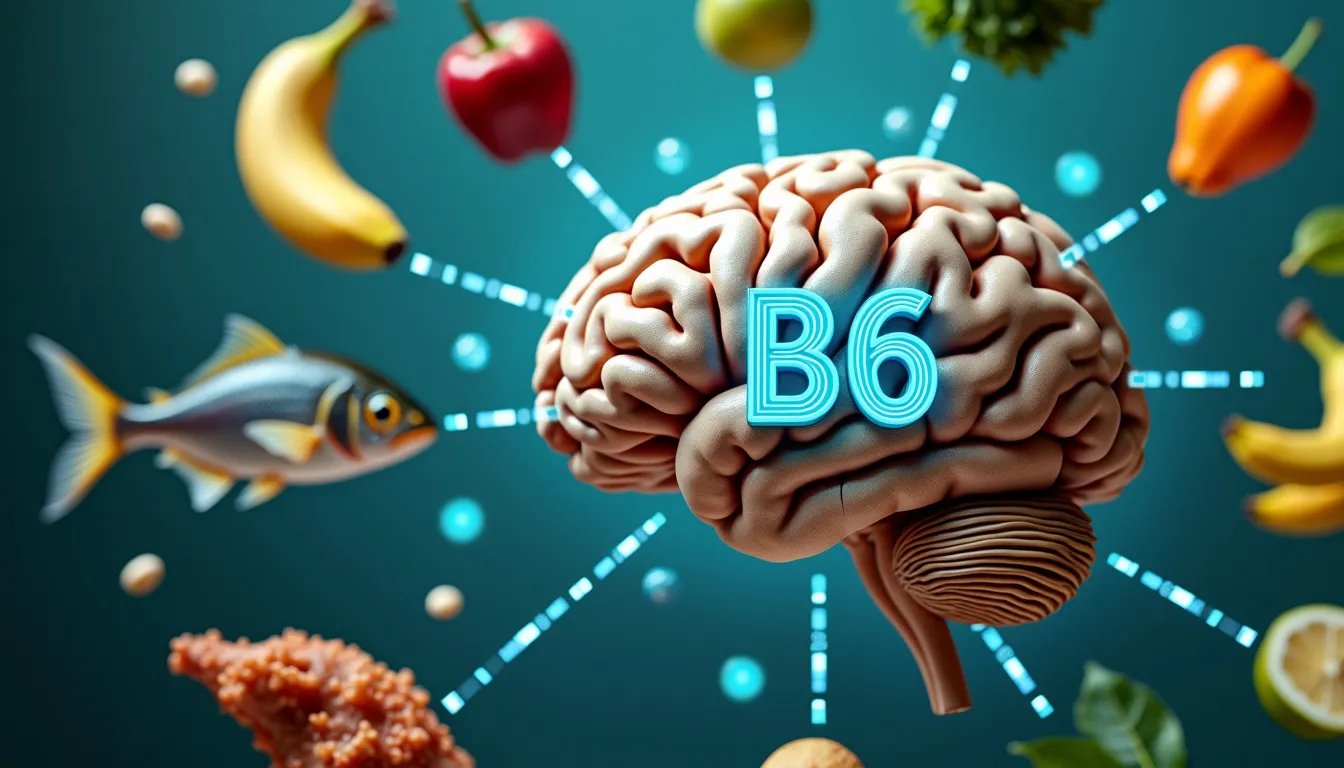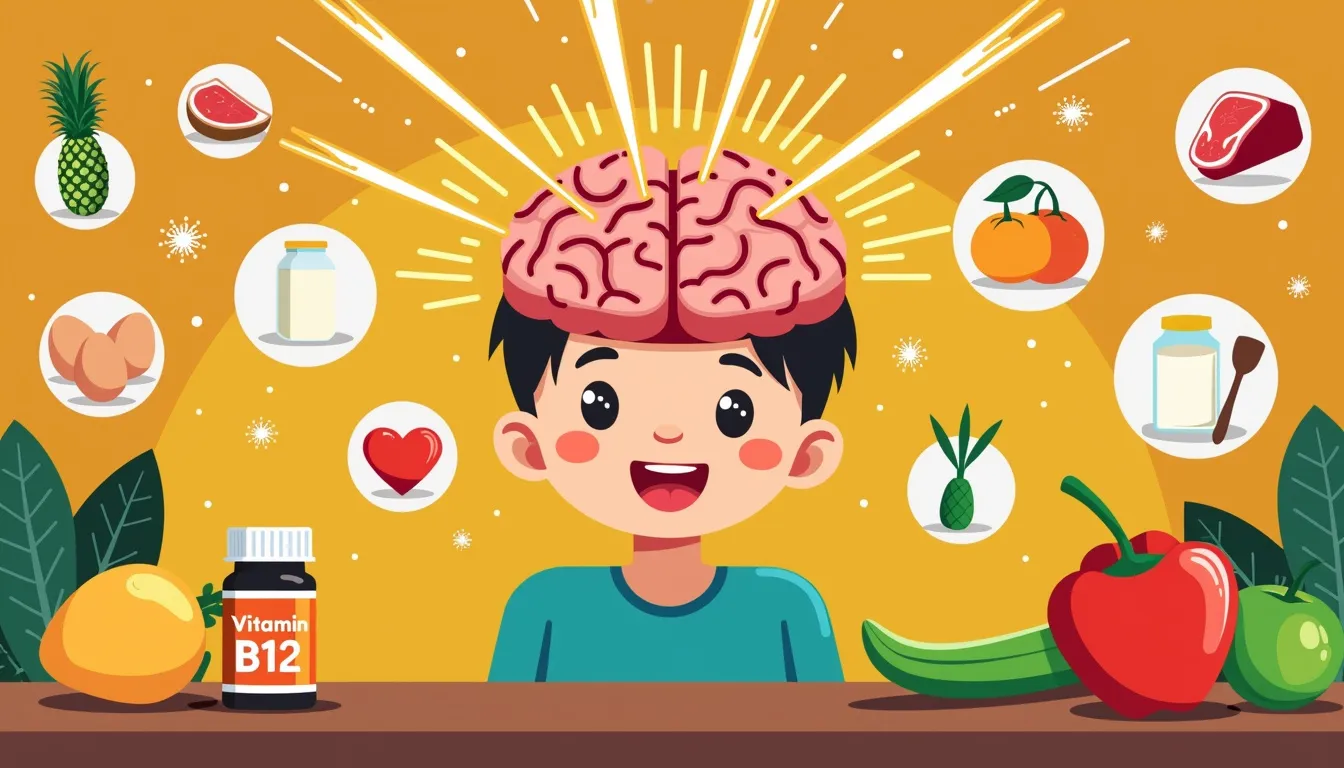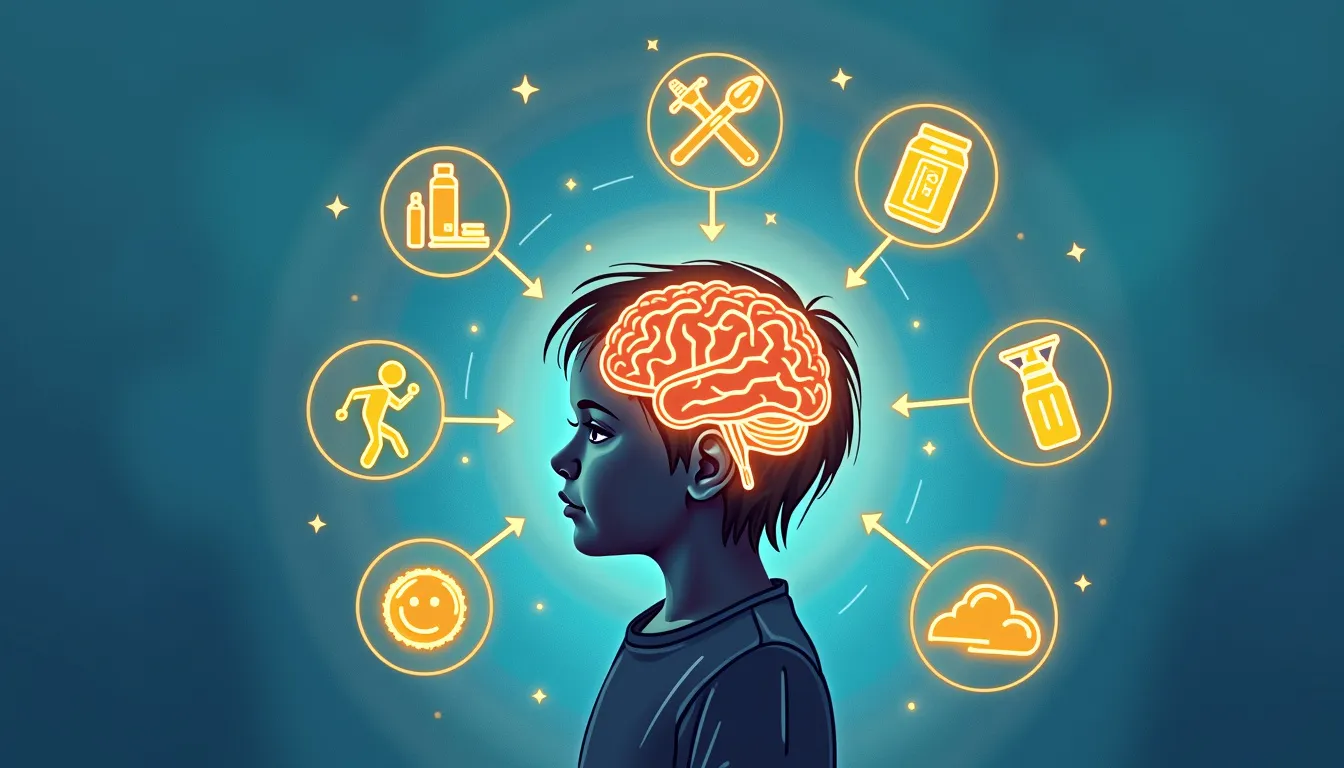Top Natural Vitamins for ADHD: How Natural Vitamins Can Help Manage ADHD Symptoms

For parents seeking natural ways to help manage ADHD symptoms in children, natural vitamins can be an essential part of a holistic approach. These nutrients can support brain health, improve focus, and promote emotional regulation. While natural vitamins for ADHD won't cure the condition, they can significantly complement other treatments, helping children thrive at school and at home.
How Natural Vitamins Can Help Manage ADHD Symptoms
ADHD can present challenges such as inattention, hyperactivity, and impulsivity. While medication is a common treatment, many parents explore natural supplements to help improve their child's focus, behavior, and mood. Research has shown that certain vitamins and nutrients can play a role in brain health, making them valuable for children with ADHD.
Top Vitamins and Nutrients to Support ADHD Management
Here are some key natural vitamins for ADHD that can help children manage symptoms more effectively:
1. Vitamin B6: Supporting Mood and Neurotransmitter Production

Why It’s Important: Vitamin B6 is crucial for the production of neurotransmitters like dopamine and serotonin, both of which play a role in mood regulation and focus. Children with ADHD often have lower levels of these neurotransmitters, which can contribute to impulsivity and inattention.
How It Helps: Studies have found that supplementing with Vitamin B6 can help improve hyperactivity, impulsivity, and attention. It helps balance brain chemistry and supports emotional regulation, as discussed in our guide on Vitamin B6 and ADHD Management.
How to Get It: Vitamin B6 can be found in foods like poultry, fish, bananas, and fortified cereals, or through child-friendly supplements.
2. Vitamin B12: Enhancing Cognitive Function and Energy

Why It’s Important: Vitamin B12 is essential for brain health and cognitive function, particularly in maintaining energy levels and supporting the nervous system.
How It Helps: Children with ADHD may benefit from Vitamin B12’s ability to reduce brain fog and improve focus. It's particularly useful for children who seem fatigued or low in energy.
How to Get It: B12 is found in animal products like meat, eggs, and dairy, or through supplements if your child follows a vegetarian or vegan diet.
3. Vitamin D: Crucial for Brain Health and Emotional Regulation

Why It’s Important: Vitamin D is essential for overall brain health and development. It helps regulate the immune system and mood, both of which are important for ADHD management.
How It Helps: Studies suggest that children with ADHD often have low levels of Vitamin D, which can affect mood and cognitive function. Supplementing Vitamin D can improve emotional regulation and reduce irritability.
How to Get It: The body produces Vitamin D naturally through sunlight exposure, but it can also be obtained from fortified foods (like milk and orange juice) and supplements.
4. Omega-3 Fatty Acids: Essential for Brain Function and Focus
Why It’s Important: While not technically a vitamin, Omega-3 fatty acids are essential for brain function and development. They help balance neurotransmitters and reduce inflammation, which can improve focus and reduce hyperactivity.
How It Helps: Omega-3s, particularly EPA and DHA (found in fish oil), have been shown to reduce symptoms of ADHD, including impulsivity, inattention, and hyperactivity. Learn more about how Omega-3 fatty acids contribute to brain health and manage ADHD symptoms in our detailed article on The Role of Omega-3 Fatty Acids in ADHD Management.
How to Get It: Omega-3s are found in fatty fish (like salmon and tuna), flaxseeds, chia seeds, and walnuts. For children who don’t consume enough of these foods, fish oil supplements designed for kids are a great option.
5. Magnesium: Helping Calm the Nervous System
Why It’s Important: Magnesium is important for regulating the nervous system and supporting relaxation. Many children with ADHD have lower magnesium levels, which can contribute to restlessness, anxiety, and difficulty focusing.
How It Helps: Magnesium supplements can help calm the nervous system, reduce hyperactivity, and promote better sleep—an area where many children with ADHD struggle. Like magnesium, natural supplements such as Ashwagandha for ADHD may also help calm the nervous system, reducing anxiety and improving focus.
How to Get It: Magnesium is found in leafy green vegetables, nuts, seeds, and whole grains. Supplementing with magnesium can be done through powders, gummies, or pills designed for children.
6. Zinc: Regulating Attention and Behavior
Why It’s Important: Zinc is vital for brain function and supports the regulation of dopamine, a neurotransmitter that plays a key role in attention and behavior.
How It Helps: Zinc deficiency has been linked to attention issues and impulsivity in children with ADHD. By supplementing zinc, you can help improve cognitive function, focus, and behavior. In addition to zinc, physical activities have been proven to enhance focus and cognitive function, contributing to ADHD management.
How to Get It: Zinc is commonly found in meat, dairy, beans, and nuts. Child-friendly zinc supplements are also available to help meet daily requirements.
Tips for Adding Natural Vitamins to Your Child’s ADHD Management Plan
Incorporating natural vitamins for ADHD into your child’s daily routine doesn’t have to be challenging. Here are a few tips to make it easier:
1. Start Small and Monitor Responses
Introduce vitamins one at a time to see how your child responds. Starting with a multivitamin that contains some of these key nutrients can be a good first step.
2. Consult with Healthcare Professionals
Always consult with your child’s doctor before starting any supplement regimen. They can guide you on the best vitamins for your child's specific needs. Consider using the Bonding Health App for ADHD Parenting for a structured approach to incorporating supplements and monitoring behavior.
3. Make Vitamin Intake Fun and Easy for Kids
Many vitamins are available in kid-friendly forms like gummies or chewable tablets, which makes it easy to incorporate them into daily routines.
4. Focus on a Balanced, Nutrient-Rich Diet
While supplements can provide support, it’s important to focus on a balanced, nutrient-rich diet to ensure your child is getting the vitamins and minerals they need naturally.
Final Thoughts on Using Natural Vitamins for ADHD

Natural vitamins and supplements are just one piece of the puzzle when it comes to managing ADHD. They can help support brain function, improve focus, and promote emotional regulation, but they work best when combined with a comprehensive approach. This might include behavioral therapy, tools for emotional regulation, and lifestyle changes like regular exercise and a good sleep routine. Natural vitamins are just one piece of the puzzle; emotional regulation tools can further aid in managing ADHD symptoms effectively.
If you’re considering adding natural vitamins for ADHD to your child’s routine, remember to do so under the guidance of a healthcare professional. With the right combination of vitamins and support, you can help your child thrive both at school and at home.


